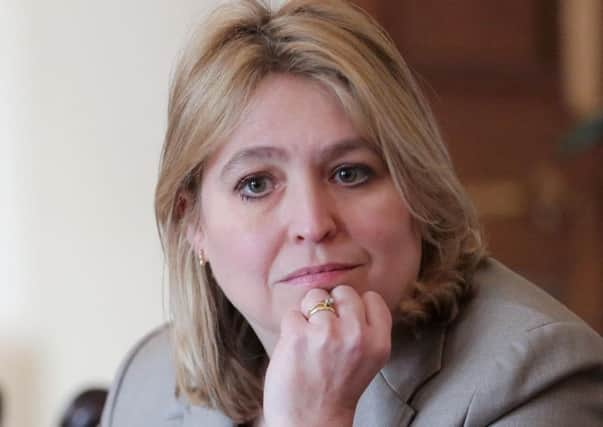Karen Bradley taking more direct rule powers in absence of Stormont


In the continued absence of a devolved administration, the secretary of state has repeatedly resisted calls – mostly from unionists – to introduce formal direct rule whereby she would take full responsibility for Stormont departments.
However, there has been creeping direct rule from Westminster with individual pieces of legislation dealing with a growing number of appointments, budgets or other decisions which are necessary to prevent public bodies in Northern Ireland coming to a halt.
Advertisement
Hide AdAdvertisement
Hide AdFive months ago, Mrs Bradley had legislated to give herself the power to appoint the attorney general, a member of the Victims’ Commission, a member or chair of the Livestock and Meat Commission or a member, chair or vice-chair of the Housing Executive.
With the agreement of Parliament, Mrs Bradley had several months earlier already taken to herself the power to appoint senior police officers, members of the Probation Board, members of the Policing Board and the highly sensitive role of police ombudsman.
The ability to appoint members of the Judicial Appointments Commission – the body which appoints judges – had already gone to the lord chancellor in London last year.
Now, under the terms of The Northern Ireland (Ministerial Appointment Functions) (No. 2) Regulations 2019 – secondary legislation which will not be debated by MPs and is likely to be passed unanimously – Mrs Bradley will receive a range of new powers.
Advertisement
Hide AdAdvertisement
Hide AdUnder the regulations, the secretary of state will be able to appoint the director or chair of the Northern Ireland Transport Holding Company, the parent company of public transport firm Translink.
She will also be able to appoint a member or chair of the Agricultural Wages Board, a member, chair or vice-chair of the Arts Council, a member of the Drainage Council, a member, chair or deputy chair of the Consumer Council, a member or chair of the Historic Buildings Council, a trustee or chair of the board of the National Museums and Galleries of Northern Ireland or a member, chair or chief executive of exams body CCEA.
The legislation will also give the Lord Chancellor, David Gauke, the power to appoint QCs in Northern Ireland.
The NIO did not issue a press release about the new powers which Mrs Bradley is seeking. When tabled in the Commons, the explanatory note to the regulations said: “An impact assessment has not been produced for this instrument as no, or no significant, impact on the private, voluntary or public sectors is foreseen.”
Advertisement
Hide AdAdvertisement
Hide AdWhen asked about the legislation, the NIO said that the appointments to which it refers “have been identified by the Head of the NI Civil Service as being critical in order to safeguard the quality and delivery of public services in Northern Ireland”. It added: “The measure is a contingency plan if the political parties do not reach agreement during the current talks process.”